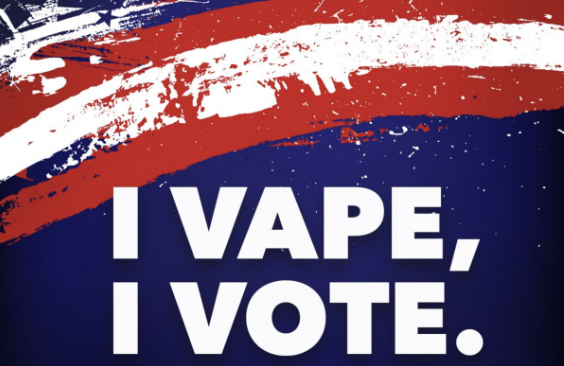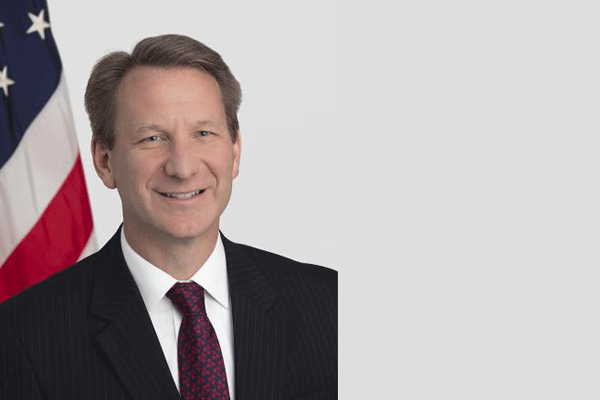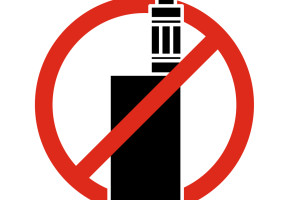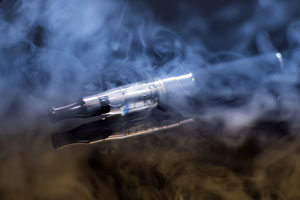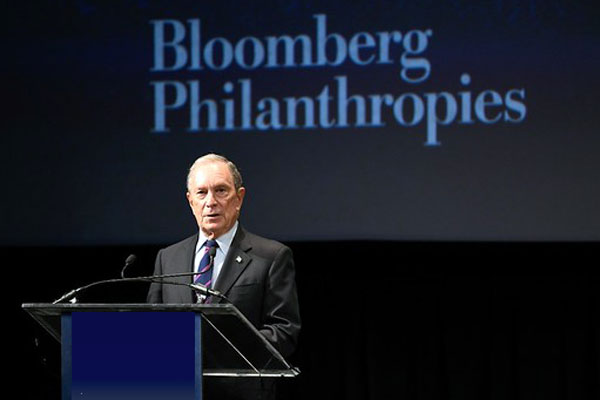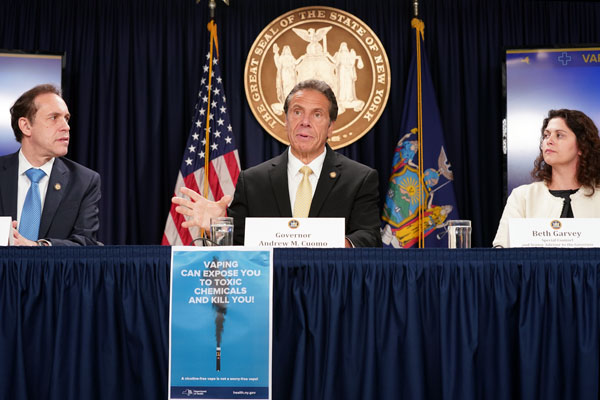U.S. President Donald Trump appeared to soften his position on banning flavored vapor products during a meeting with stakeholders on Friday, citing concerns about black market sales, according to reports in The Wall Street Journal, The Washington Post and USA Today.
“If you don’t give it to them, it is going to come here illegally,” he said during a “listening session” at the White House that included vapor industry leaders, public health advocates and others on policies to address a surge in underage vaping.
Trump said that instead of legitimate companies “making something that’s safe, they are going to be selling stuff on a street corner that could be horrible.”
“Now instead of having a flavor that’s at least safe, they are going to be having a flavor that’s poison,” he said.
Trump announced a ban on flavored e-cigarettes in September in response to growing youth vaping. The administration had been expected to release details on the ban earlier this month, but it was delayed following pushback from conservative interest groups, vapor industry advocates and e-cigarette users, who warned about job losses, illicit sales and the risk of vapers taking up smoking.
Pro-vaping organizations have also been publishing surveys showing that vaping is popular in key states Trump needs to win reelection.
During the Friday meeting, Trump reiterated his support for raising the minimum age to purchase e-cigarettes and tobacco products to 21 from 18, a move backed by e-cigarette maker Juul Labs and other companies.
Vapor industry representatives put forward alternatives to an outright ban, such as advertising limits, an end to online sales, requiring e-cigarettes to be kept behind the counter or restricting their sale to adult-only stores.
Anti-tobacco advocates pleaded with Trump to stick with the flavor ban, saying bright students were failing out of school because of their nicotine addictions.
According to The Washington Post, the Friday meeting resembled a public policy version of the reality TV show “The Apprentice,” during which industry and government representatives occasionally shouted at each other in order to persuade Trump.
Among those on the guest list were Juul Labs CEO K.C. Crosthwaite and two executives of the largest U.S. tobacco companies, Altria CEO Howard Willard and Reynolds’ Joseph Fragnito.
Other invitees included Gregory Conley, president of the American Vaping Association, and Tony Abboud, executive director of the Vapor Technology Association.
Health leaders who attended included the Campaign for Tobacco-Free Kids president, Matt Myers, the American Academy of Pediatrics president-elect, Sally Goza, and the American Lung Association president, Harold Wimmer.
Conley said afterward that the president “seemed to understand that prohibition is not the only option.”
“He cares a lot about youth and keeping them away from these products, but there [are] the jobs issues and the adult cessation issue that is clearly weighing on his mind,” Conley said.
Gary LeRoy, president of the American Academy of Family Physicians, noted that the sides were far apart on such issues as the value of vaping to wean adults off of cigarettes but said all sides seemed to agree that vaping “has no place for young adults below the age of 21.”
A transcript of the listening session is available here.


